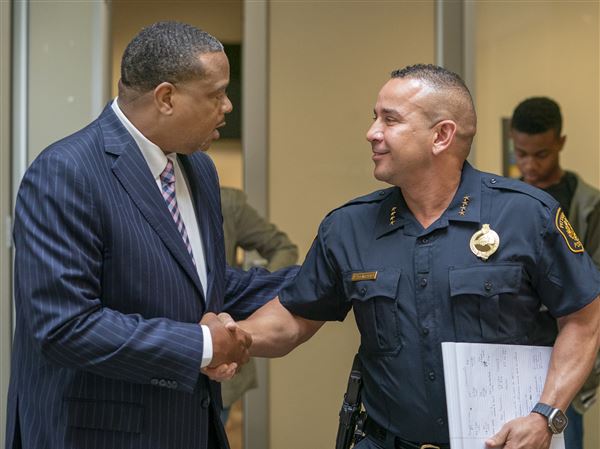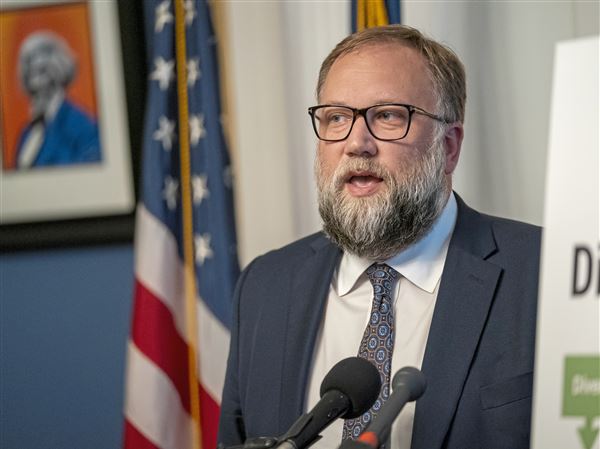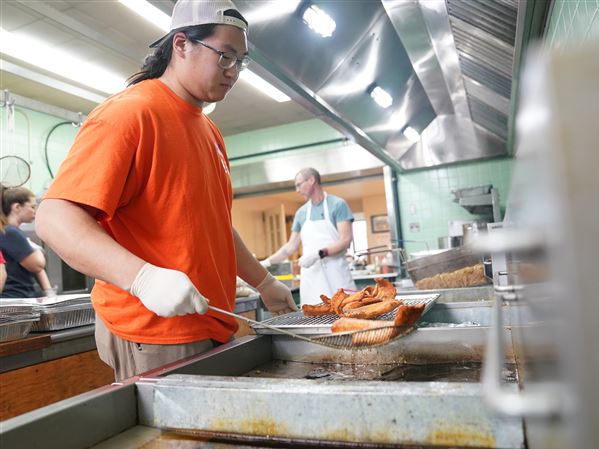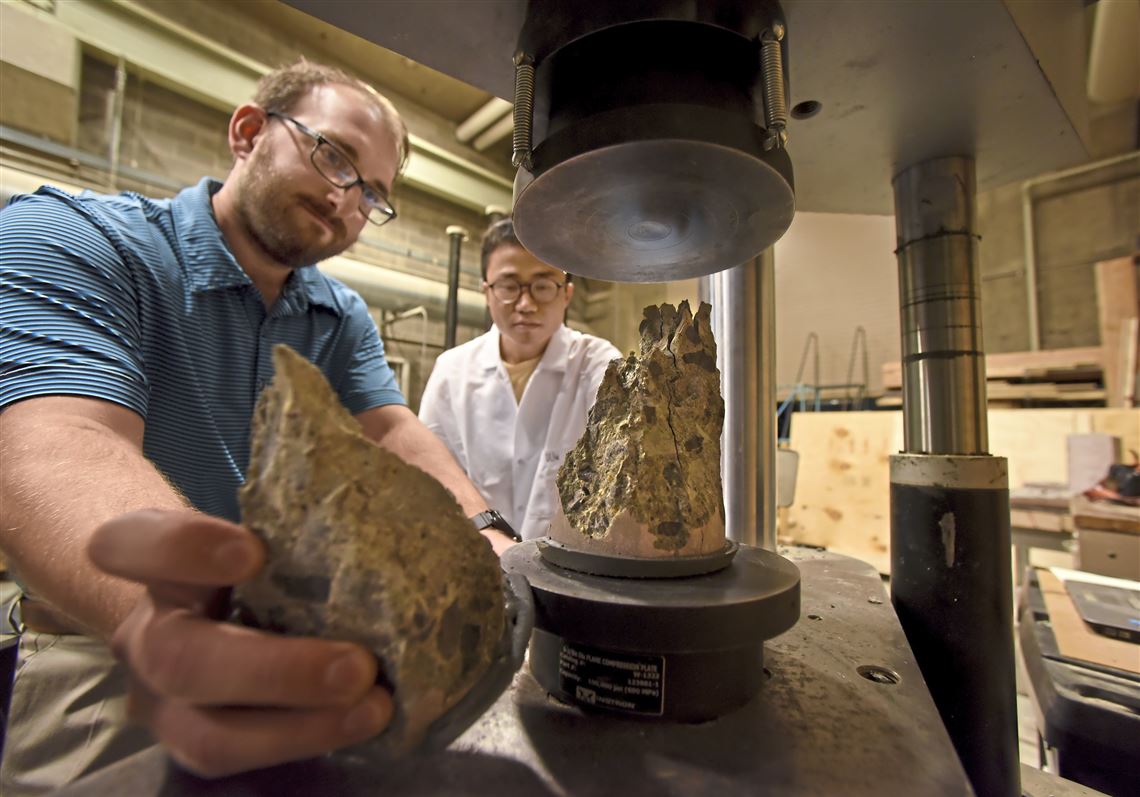Over the years, government officials and private contractors say, academic research into transportation construction issues too often wasn’t practical for use on this area’s roads and bridges.
A 1-year-old consortium coordinated by the University of Pittsburgh’s Swanson School of Engineering is out to change that.
Known as IRISE — Impactful Resilient Infrastructure Science and Engineering — the consortium involves government, industry and academic leaders working together to choose the research projects that they think would most benefit road and bridge work in this area. The first year’s projects include reviewing ways to prevent or reduce corrosion; whether microbes can be used to help concrete “self-heal” cracks; better mixes of concrete for repairs years after it cures; and improving a design tool so it can be more easily applied to conditions in Pennsylvania.
“Having all the partners identify what they need is the key to the consortium,” said Julie Marie Vandenbossche, director of the consortium and a professor of civil engineering specializing in concrete.
“You don’t want to [research] something that they can never repeat in the field. We have a great beginning in this first year and we hope to build on that.”
The consortium has commitments for five years of funding at $425,000 a year. The partners include Allegheny County, the Pennsylvania Department of Transportation, Golden Triangle Construction, Michael Baker International and the Pennsylvania turnpike Commission, which are contributing differing amounts to the project.
Growth from failure
The idea for the consortium grew out of the university’s failed attempt two years ago to win designation by the U.S. Department of Transportation as one of its National University Transportation Centers. The current members all were part of the university’s grant proposal, Ms. Vandenbossche said.
“We went back to them after we didn’t get the grant and said, ‘We’re still excited about this. Are you?’” she said. “They said they were, so here we are.”
The partners said the biggest advantage is getting all three components together, whether it’s to identify common problems to research or the monthly steering committee meetings. That’s when they can share ideas and experiences to find out how others deal with issues.
“I think we have to do more than bid projects and build things,” said Chuck Niederriter, chief operating officer at Golden Triangle and a Pitt engineering graduate who said he felt “a disconnect” after he went into private industry.
“We felt and [the university] felt it was important for private industry to be involved from the beginning. It gets frustrating when [researchers] do things that aren’t practical.”
Dan Cessna, a former PennDOT district executive and senior vice president for design firm Michael Baker, said the consortium has mutual benefits for government leaders, private industry, researchers and students who are helping with the research. As part of the research, engineering students have visited construction of the turnpike’s new highway, the Southern Beltway near Pittsburgh International Airport, and other construction projects to see how their research is used in real life.
“We need to stretch the boundaries of research,” Mr. Cessna said. “[The consortium] was an opportunity for us to get involved in what could be cutting-edge research. Having a seat at the table with Pitt was important to us.”
The turnpike’s Michael Schultz, strategic planning program manager, and Melissa Orlandini, an engineer and project manager in the roadway engineering department, said the consortium is important to their agency because it doesn’t have its own research-and-development division to address issues. Ms. Orlandini has spent five years on the turnpike’s innovation council, which reviews construction improvements tested by others.
“[The consortium] is good because we do have the public and the private sector working with us,” Mr. Schultz said. “It isn’t just an academic research project that will sit on a shelf.”
Allegheny County Manager William McKain said the county always is looking for new ideas to help it care for more than 400 miles of roads and more than 500 bridges.
“It made so much sense to me. … Why shouldn’t we all get in the same room and talk about these issues?” he said. “I think it’s been a great partnership and a great program so far.”
The first four
The first four research topics are at various stages.
The project on corrosion involved reviewing other research literature to identify best practices. It should be finished in about a month.
Repairing concrete after it has completely cured, usually after about seven years, has long been a problem because it is difficult to get the right mix of new material to adhere to it, Ms. Vandenbossche said. The project, which involves adjusting the amounts of water, Portland cement, stones and air based on the condition of the existing concrete, should finish by the end of the year.
The research involving microbes, which emit carbonate as they reproduce, was “a flippant idea over a beer” that could hold great promise, said Sarah Haig, assistant professor of civil and environmental engineering with the department’s Mascaro Center for Sustainable Innovation. The goal is to mix microbes with concrete and use the carbonate as a sort of “natural bandage” to seal cracks, a process called microbially induced carbonate precipitation.
Ms. Haig also is researching whether microbes may help stiffen soil to help prevent landslides.
“Microbes are amazing. They are the best known chemists on the planet,” said Ms. Haig, who expects to finish the work on cracks by the end of the year.
The final, more practical project this year involves developing boilerplate Pennsylvania conditions and requirements for a nationally used design tool so designers don’t have to enter them every time they use the tool.
Gary Euler, associate director of the consortium, said it will begin identifying projects for the second year in September and is willing to consider additional members.
For the turnpike, Mr. Schultz said one goal would be finding a way to extend the life of asphalt, which lasts about seven years, to more than 10 years while Mr. McKain said the county is particularly interested in sustainability and technology improvements.
Correction, posted July 18, 2019: Michael Baker International is contributing $50,000 to the University of Pittsburgh’s Impactful Resilient Infrastructure Science and Engineering consortium to study road construction problems. A previous version of this story included an incorrect amount.
Ed Blazina: eblazina@post-gazette.com, 412-263-1470 or on Twitter @EdBlazina.
First Published: July 15, 2019, 11:45 a.m.
Updated: July 18, 2019, 4:58 p.m.

















